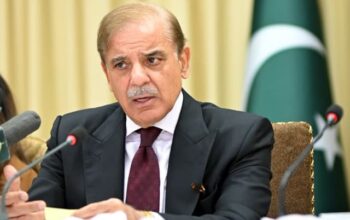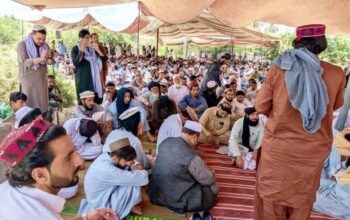By Staff Reporter
ISLAMABAD: Pakistan began the second phase of its Afghan refugee repatriation programme on Thursday, targeting holders of Afghan Citizen Cards (ACC) after a government deadline expired, despite international pleas for leniency and conflicting reports over possible delays.
The operation, which follows the return of over 473,000 Afghans since September 2023, kicked off with camps set up at Landi Kotal and Nasir Bagh Road in the northwest, near the Afghan border.
A senior official from the Afghan Commissionerate in Peshawar confirmed the start, saying, “Although the deadline was March 31, the provincial government extended it till April 2 keeping in view Eidul Fitr. Now, phase 2 will begin from [Thursday].”
The initial deadline of March 31 for ACC holders to leave voluntarily was briefly relaxed by two days for the Muslim holiday, sparking confusion.
Some reports, including from AFP, suggested an extension until early next week, while the Associated Press cited a pause in arrests and deportations until April 10.
However, no official confirmation of the extension was announced.
Law enforcement sources in Islamabad and Rawalpindi also hinted at a quiet extension to April 10, but an interior ministry official firmly denied any change, insisting the plan was on track.
Since September 2023, Pakistan has repatriated 69,494 families—473,397 individuals, including 157,513 men, 111,381 women, and 197,821 children—according to official figures.
The latest phase targets an estimated 800,000 ACC holders, part of a broader push that began in late 2023 to expel undocumented migrants and registered Afghans amid security concerns.
The United Nations refugee agency (UNHCR) expressed alarm over the move. “We are concerned regarding the government’s directive, as among the Afghan Citizen Cardholders, there might be individuals requiring international protection,” UNHCR spokesperson Qaiser Khan Afridi told local media.
“We urge the government to view their situation through a humanitarian lens and call for engagement between Pakistan and Afghanistan so returns can be dignified and voluntary.”
Afghanistan’s interim Taliban government echoed the call for compassion.
Minister for Refugees Mawlavi Abdul Kabir urged humane treatment, citing reports of mistreatment by border nations, including deportations of Afghans with legal visas. “We reiterate our call for the voluntary return of Afghan migrants and urge Pakistan and Iran to stop forced deportations,” a government statement said.
Pakistan insists it is carrying out the deportation campaign in a humane manner, saying it respects the dignity of all Afghan nationals.
Pakistan’s Interior Minister Mohsin Naqvi briefed Prime Minister Shehbaz Sharif, PML-N leader Nawaz Sharif, and Punjab Chief Minister Maryam Nawaz in Lahore this week on the repatriation progress and security measures.
The government has brushed off criticism from UNHCR and other agencies, pressing ahead with a policy driven by fears of militancy linked to Afghan nationals. International rights groups have also urged Islamabad to halt the deportations, warning that some returning Afghans could face threats under Taliban rule.
Pakistan has hosted millions of Afghans since the Soviet invasion of 1979, with numbers swelling after the Taliban’s 2021 takeover. Relations with Kabul have since soured, with Islamabad accusing the Taliban of sheltering Pakistani militants.
The repatriation drive, launched in October 2023, has drawn accusations of rights violations, with rights groups warning of risks to returnees in a volatile Afghanistan.
As camps opened on Thursday, the fate of hundreds of thousands remained uncertain, caught between Pakistan’s security priorities and international calls for mercy.
Copyright © 2021 Independent Pakistan | All rights reserved




